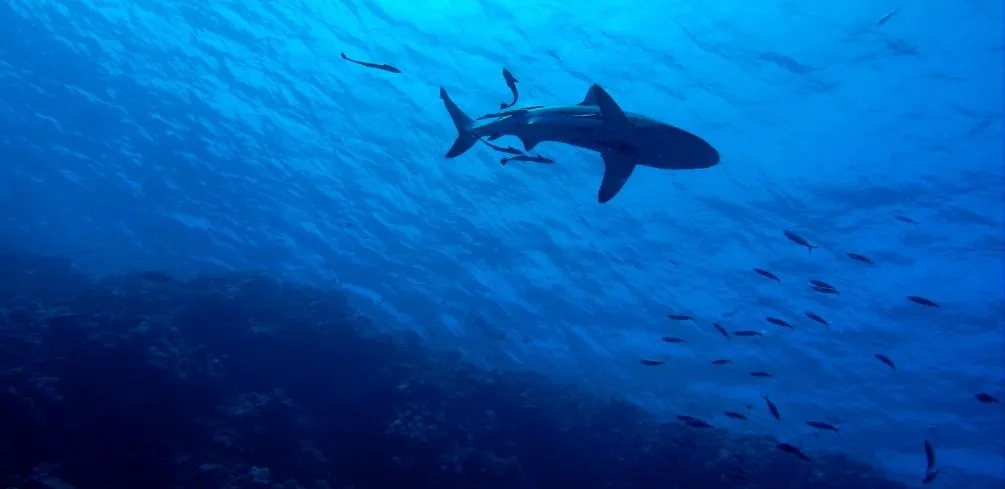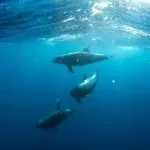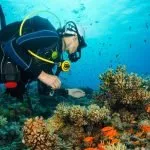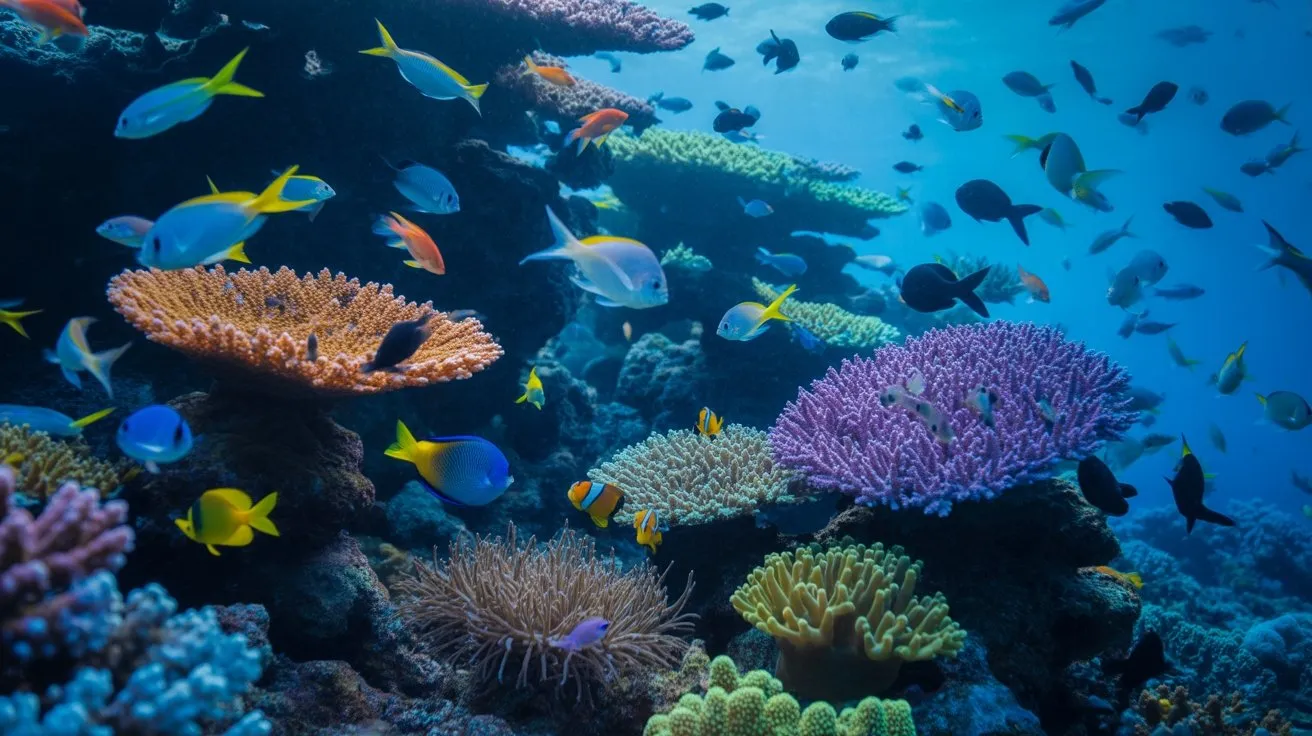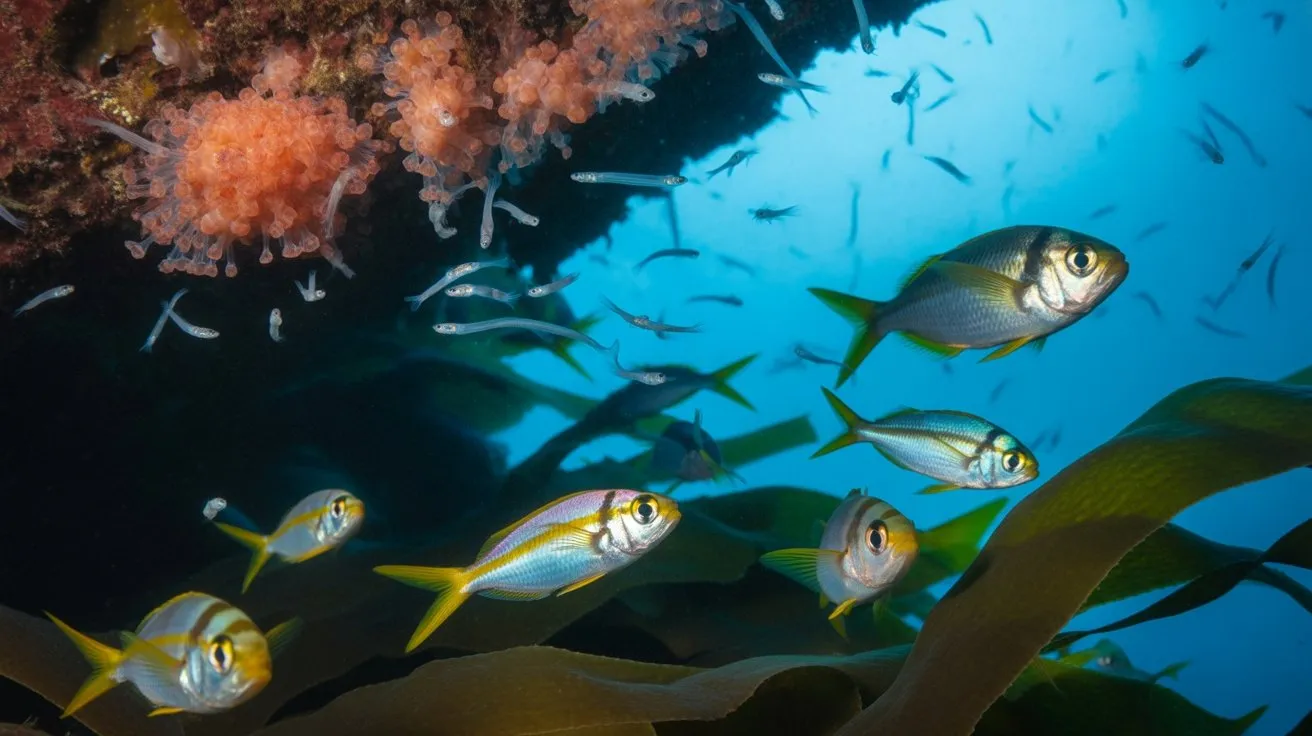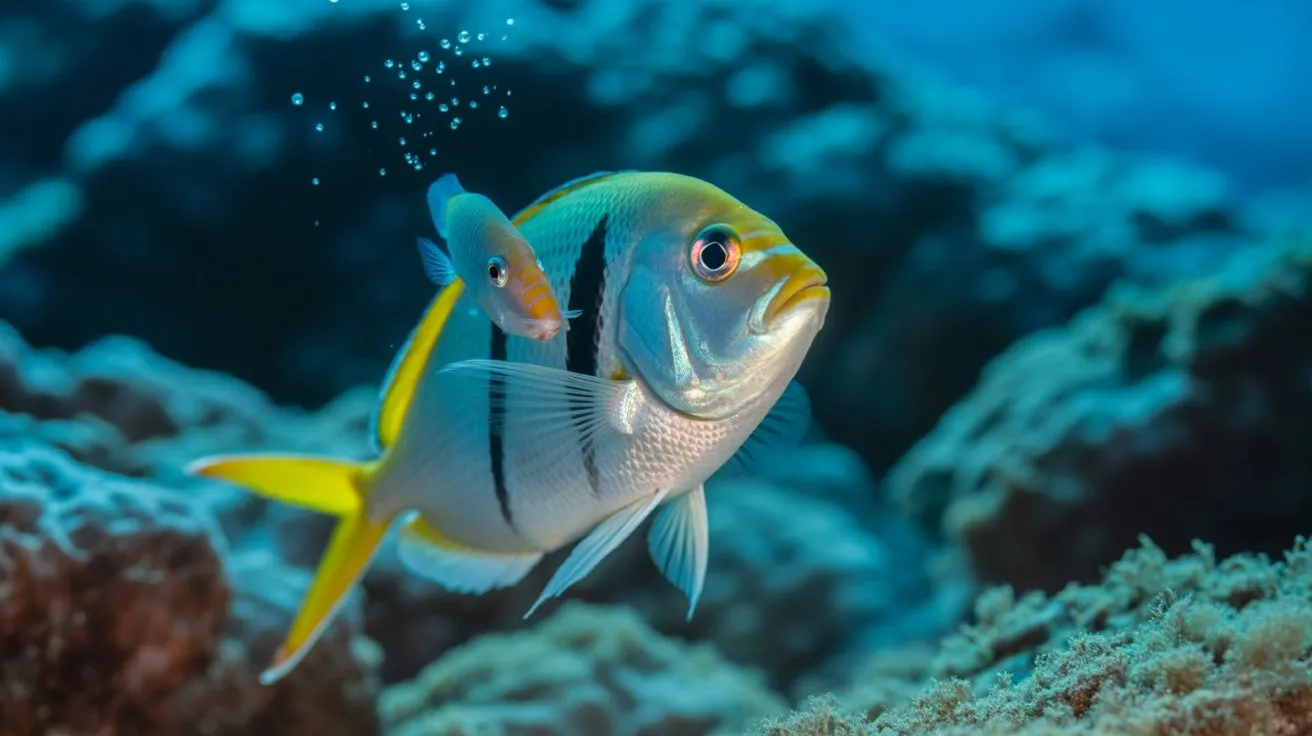The ocean is a mysterious place, filled with creatures that are still largely unknown to us. One of the fascinating elements of this vast ecosystem is the role of predators.
From massive whales to tiny plankton, they all play an important role in keeping the ocean healthy. But what exactly do these predators do, and how can we better understand their impact? We’re here to investigate the role of ocean predators and uncover some of the secrets that lie beneath the surface.
For centuries, scientists have studied these elusive creatures in an effort to learn more about their habits and habitats. By observing their behavior, researchers can get a better understanding of how ocean ecosystems work and how different species interact with one another.
This research provides valuable insight into our planet’s complex marine life and helps us protect it from human-caused destruction.
As we continue to explore and learn about our oceans, it’s important to recognize the importance of predator species for maintaining balance within the ecosystem. Through this article, we’ll uncover some of these secrets and discover how understanding these predators can help protect our oceans for future generations. So let’s dive deep into investigating the role of ocean predators!
Types Of Predators
Did you know that over 500+ shark species call the ocean their home? That’s just one type of predator that makes up the rich diversity of life in our oceans.
Marine mammals such as dolphins, whales, and seals are also powerful hunters and are important parts of the food web. Sea turtles, jellyfish, and octopuses all eat smaller animals like fish and shrimp to keep the balance of nature in check.
In terms of size and strength, sharks reign supreme among predators in the ocean. They can range from small species, like dwarf lantern sharks, to larger ones, such as great white sharks.
Sharks have evolved over millions of years, giving them features like keen eyesight and an incredible sense of smell. They use these to hunt a variety of prey, including fish, squid, crustaceans, and even other marine mammals.
The other predators mentioned above play similarly important roles in the ocean environment. Marine mammals like dolphins act as apex predators, while sea turtles target slow-moving prey like jellyfish.
Octopuses are also powerful hunters, with their eight arms helping them catch anything from crabs to cuttlefish with ease. All these creatures contribute to the cycles that keep our oceans healthy for generations to come.
Impact On Marine Ecosystems
Now that we’ve discussed the types of predators in our oceanic environment let’s take a look at their impact on marine ecosystems. The presence of ocean predators plays an important role in the overall health and stability of marine life.
They keep the populations of their prey species in balance, which helps to maintain a healthy level of biodiversity in the oceans.
The presence of predators also encourages the natural behavior of their prey species, such as foraging or competing for resources. This helps to maintain a more balanced distribution of resources among all species in the marine environment.
Furthermore, by controlling the population sizes of their prey, predators play an essential role in preventing over-fishing and habitat destruction by humans.
Here are four ways that ocean predators help maintain a healthy marine ecosystem:
- They keep prey populations balanced and under control.
- They promote the natural behavior of their prey species.
- They prevent overfishing and habitat destruction.
- They help to preserve marine biodiversity.
In sum, ocean predators play an integral part in keeping our oceans healthy and thriving. By controlling population numbers, encouraging natural behaviors, and preserving biodiversity, they play a vital role in sustaining oceanic life and maintaining a stable ocean ecology.
Conservation Efforts
The conservation of ocean predators is a huge challenge. There are numerous strategies that are employed to ensure their survival and the preservation of their habitats.
These strategies include marine protection, population management, habitat restoration, and research on the behavior and ecology of these animals.
| Marine Protection | Population Management | Habitat Restoration |
|---|---|---|
| Establish protected areas & regulations | Monitor populations & fishing practices | Restore coral reefs & seagrass beds |
| Reduce pollution & bycatch mortality | Create sustainable fishing practices | Protect nesting sites & breeding grounds |
| Develop sustainable shipping practices | Implement fishing bans in certain areas | Increase public awareness & education programs |
In order to make these conservation efforts successful, steps must be taken to reduce threats to ocean predators, such as pollution, overfishing, and habitat degradation. Additionally, it is also important to monitor the current populations of ocean predators so that they remain stable or even increase.
This can be done through research on their behavior and ecology as well as monitoring fishing practices in certain areas. It is also important to establish protected areas and regulations for fisheries so that there is less pressure on the species.
Lastly, it is essential to restore habitats of ocean predators like coral reefs and seagrass beds. This can be done by protecting nesting sites and breeding grounds as well as increasing public awareness about the importance of conserving these species.
Through education programs, people can learn more about how best to protect themselves from various threats like pollution and overfishing. It also helps if governments create sustainable shipping practices that prevent accidental deaths of animals due to collision with ships or entanglement in nets. All these efforts together can help ensure the survival of ocean predators for years to come.
Human Interference
Moving on from conservation efforts, we now come to human interference and its profound effects on ocean predators. Human activities such as ocean pollution, overfishing, and the destruction of marine habitats are largely responsible for the extinction of many top-level predators. This is a major issue that needs to be addressed if we’re ever going to protect ocean predators in the future.
Ocean pollution has been a major cause of predator extinction. Pollutants like oil, plastics, and chemicals are absorbed by prey species, which are then consumed by predators.
This can cause serious health problems for these animals, leading to death or a decrease in population numbers. Additionally, pollutants can affect the reproductive capacity of these species, making it more difficult for them to reproduce and survive.
Human interference also plays a key role in overfishing which has caused devastating declines in fish populations worldwide. This has led to a decrease in the availability of prey species for predators like sharks and whales, which rely on them for food.
Furthermore, increased fishing pressure can also lead to habitat destruction due to trawling nets or other forms of destructive fishing practices. As a result, these marine habitats become less suitable for predators, and their populations start to decline as well.
Clearly, human interference is having a huge impact on ocean predators around the world. If we want to protect these animals from extinction, we must take steps now to reduce our impact on their environment and ensure that their habitats remain healthy and sustainable in the future.
Research Methods
One might argue that researching ocean predators is a difficult task and that it would be impossible to observe them in their natural aquatic habitats accurately. However, with the help of modern technology, researchers can gain invaluable insight into the behaviors of these animals.
The methods used to study ocean predators include tagging and tracking, acoustic monitoring, photographic identification, and direct observation. Tagging and tracking involve attaching tags to an animal’s body, which then emit signals that are picked up by receivers placed around the area, allowing researchers to monitor the animal’s movements over time.
Acoustic monitoring can also be used to track animals by detecting sound waves made by the animals as they move through the water. Photographic identification is when researchers take pictures of individual animals so that they can be identified later – this helps scientists understand population size and individual behavior patterns.
Finally, direct observation allows researchers to physically observe marine predator behavior in their natural environment.
These research methods are essential for our understanding of how ocean predators interact with their environment and how we can better conserve them for future generations.
By using modern technology such as tagging and tracking devices and acoustic monitoring equipment, researchers can learn much more about the behavior of marine predators than ever before – giving us hope that their populations will remain healthy for years to come.
Frequently Asked Questions
What Are The Most Common Ocean Predators?
When it comes to ocean predators, there are several species that come to mind. Sharks, killer whales, sea turtles, octopuses, and jellyfish are some of the most common species.
They all play a key role in the marine food chain, helping to keep the balance of nature in check.
Sharks are one of the most feared predators in the ocean. These apex predators come in many shapes and sizes and feed on everything from fish to seals. Some of the most common shark species include great white sharks, hammerhead sharks, and tiger sharks.
Killer whales also play an important role as apex predators. These intelligent creatures can be found throughout the world’s oceans, feeding on a variety of prey, including sea lions, seals, and even other whales. In addition to hunting prey for food, killer whales also work together with their pods to hunt for food.
Sea turtles are another important predator in the ocean ecosystem. These gentle animals feed primarily on jellyfish and algae. However, they have been known to eat other creatures, such as crabs, squid, and mollusks as well.
Octopus species, such as the giant Pacific octopus, also play an important role as predators in the ocean environment. They feed on everything from clams to fish and can be found throughout tropical waters around the world.
Finally, jellyfish species such as moon jellies or box jellies can also be considered predators in some cases due to their venomous stingers, which they use for defense against potential prey items like small fish or crustaceans. This helps them keep their numbers balanced within their ecosystems so that they don’t become overpopulated or starve out other organisms that rely on them for sustenance.
These different types of ocean predators each have an important part to play when it comes to keeping our oceans healthy and balanced – from large apex predators like sharks down to smaller jellyfish species that help protect our coral reefs from overpopulation or destruction by larger creatures looking for food sources.
What Are The Long-Term Consequences Of Ocean Predator Decline?
It has become increasingly clear that the decline of ocean predators is having major consequences for our planet’s marine ecosystems. For example, if the top predators of a food web, such as sharks and tuna, experience significant declines due to overfishing or other anthropogenic activities, it can lead to a ripple effect throughout the entire ecosystem.
As apex predators, their presence helps to maintain healthy predator-prey relationships and preserves biodiversity. Without them in the equation, other species can become disproportionately abundant and disrupt the delicate balance in nature.
The loss of these species also has implications for ocean health beyond just predator-prey relationships. Studies have shown that when certain keystone predators are removed from an area, it can cause an increase in sedimentation and nutrient runoff into surrounding waters.
This means that even though fewer fish may be caught by fishing vessels, there could still be a decrease in overall ocean health due to this disruption of natural processes.
As humans continue to interact with ocean ecosystems, it is important to remember the importance of predator conservation and how our actions can impact marine biodiversity. We must take steps now to protect ocean predators from further decline or risk seeing serious long-term consequences for our planet’s oceans and all the life within them.
How Can Ocean Predators Be Protected From Human Interference?
The protection of ocean predators from human interference is an important step in ensuring their safety and the preservation of their populations. Human interference can take many forms, from fishing practices to plastic pollution, and it’s essential that predator conservation strategies are put in place to protect these species. There are a variety of predator conservation efforts that can be employed to ensure the safety of ocean predators.
To begin with, governments need to implement regulations that limit or ban certain fishing practices that threaten ocean predators. Fishing methods such as bottom trawling and drift nets can have devastating consequences for predator populations, so it’s crucial that fisheries are managed responsibly.
Plus, there should be greater public awareness campaigns about the importance of sustainable fishing practices. This will help promote responsible fishing habits among recreational and commercial fishers alike.
Finally, efforts must be made to reduce plastic pollution in our oceans. Plastic debris poses a major threat to ocean predators as they often become entangled in this material or ingest it when feeding on contaminated prey species.
Governments should encourage businesses to move away from single-use plastics and invest in greener alternatives such as biodegradable materials. Furthermore, policies should be implemented at local levels to reduce plastic waste entering our oceans through littering and poor waste disposal practices.
It is clear that human interference is one of the greatest threats facing ocean predators today. To ensure their survival, we must take proactive steps toward protecting these species by implementing effective predator conservation strategies and reducing plastic pollution in our oceans.
How Can Research On Ocean Predators Be Made More Accessible?
Investigating the role of ocean predators is a complex task that requires access to research in order to be effective. In order to make this research more accessible, the current topic focuses on how ocean predator research can be made more available.
Accessible research on ocean predators is essential for conservation efforts and understanding their decline. To ensure that predator conservation strategies are successful, it’s important for researchers to have access to the most up-to-date information on ocean predators and their habitats.
Here are some ways to make ocean predator research more accessible:
- Digitalizing data sets
- Increasing collaboration between organizations
- Expanding funding opportunities
- Making use of open-access journals
Making ocean predator research more accessible benefits not only those doing the research but also those who rely on predator populations for economic stability or food. Making this data easier to access will allow people from all backgrounds to contribute meaningfully to the conversation around preserving these species and their habitats.
As a result, we can come together as a collective to create sustainable solutions that benefit both humans and predators alike.
What Are The Potential Benefits Of Ocean Predator Conservation?
I’m sure you’ve heard of ocean predators, but have you ever considered the potential benefits of conserving them?
Conservation strategies for ocean predators can actually bring a myriad of benefits to both predator populations and the ocean ecosystems in which they live. Let’s explore what these potential benefits could be.
First off, it’s important to note that when we conserve ocean predators, we’re also conserving their prey species as well. This is because predator conservation efforts typically involve protecting entire ecosystems from overfishing and other forms of exploitation.
This can help maintain healthy populations of prey species such as fish and sea mammals, thereby reducing the strain on our own fisheries. It can also help preserve delicate habitats such as coral reefs by keeping prey populations in check.
Not only that, but predator conservation can also benefit us directly by providing us with valuable resources. For example, some ocean predators are vital to maintaining healthy fish stocks through their role in controlling population numbers.
By preserving these populations, we can ensure a steady supply of seafood for ourselves and reduce our reliance on unsustainable fishing practices that damage marine ecosystems. Additionally, some endangered species of ocean predators may even have medicinal properties that could be beneficial for humans if conserved properly.
Ultimately, predator conservation is about much more than just protecting individual species; it’s about preserving entire ecosystems and reaping the rewards those ecosystems provide us with – from food to medicine and beyond. With careful planning and sustainable management practices, we can ensure that these precious natural resources remain available for generations to come.
Conclusion
The ocean is a vast and diverse ecosystem, home to a variety of predators that play an important role in the health of our planet. It is essential that we take steps to protect these predators from human interference so that they can continue to perform their vital functions.
We must also consider how research on ocean predators can be made more accessible. By doing this, we can bring public awareness to the issues surrounding predator decline and hopefully spur people into action. With the right policies and initiatives in place, we can prevent further damage to our oceans and ensure their continued prosperity for generations to come.
If we all work together, it will be like a ripple effect – each individual action combining with others until, eventually, the entire ocean is restored. We must act now to safeguard the future of these majestic creatures and preserve our fragile marine environment for years to come.
